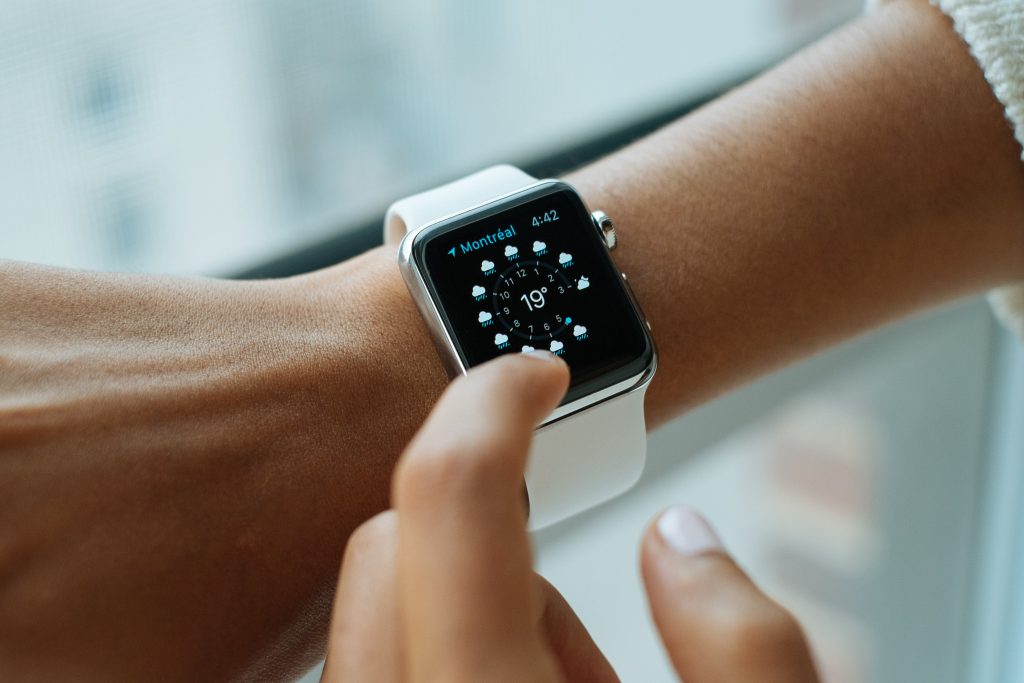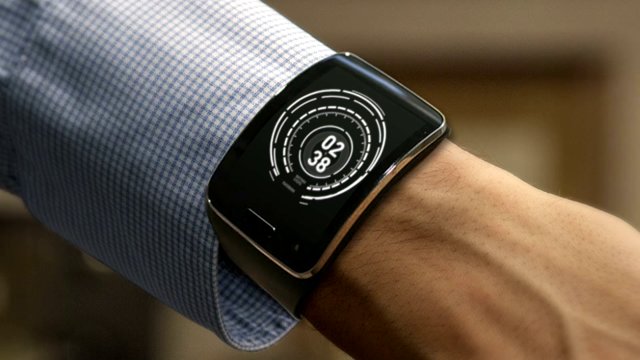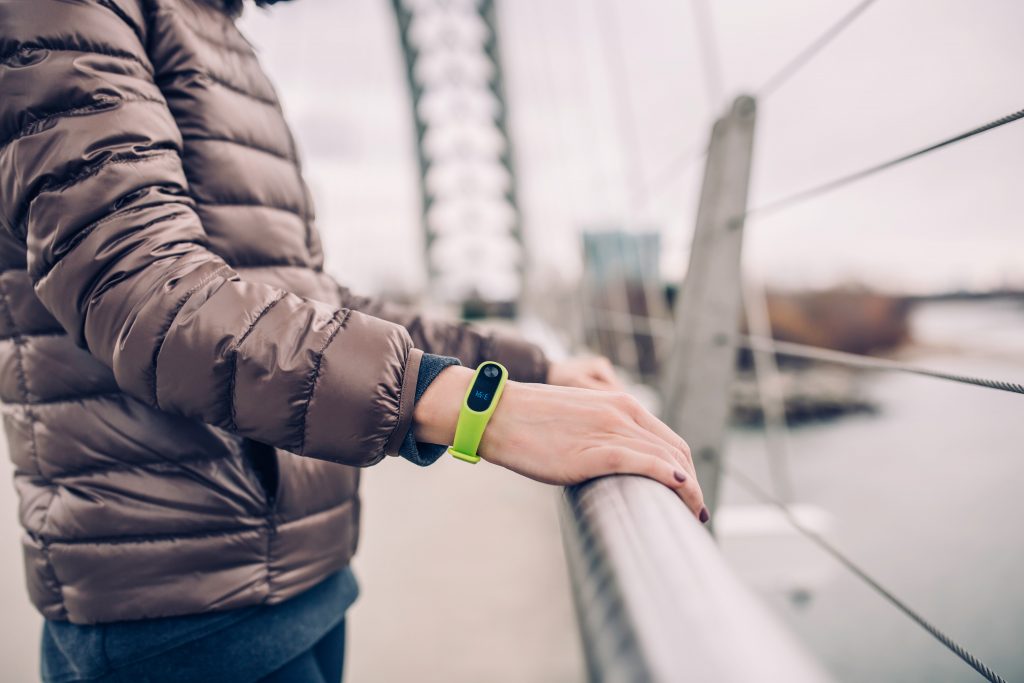Wearable devices, including smart watches and fitness trackers, are meant to be worn at all times. That makes a lot of sense, right? They are called “wear-ables” after all? But, are smart watches safe?
Ultimately, this means they are making direct contact with your body — whether that means they’re touching your wrist, chest, or somewhere else. An understandable question then is are smart watches safe?
While the idea of wearing certain electronics is not new, or all that concerning in many cases, today’s smart technologies could potentially pose a threat. They use a collection of wireless radios such as WiFi and Bluetooth to transmit data over-the-air to additional systems, mainly smartphones.
What happens when those wireless signals come into contact or interact with your body? Is it damaging your skin, muscles or worse? Are there other elements of the device to worry about, such as the battery? What about radiation emissions?
Are Smart Watches Safe?

You’ve undoubtedly heard reports that smartphones — and the networks they’re connected to — can be detrimental to your health. Without discussing the validity of these claims, they don’t concern wearable devices such as smart watches, unless the smart watch includes a mobile network radio like 3G or 4G.
For the most part, mobile connectivity tends to be a rare feature, reserved only for some of the newer Apple Watch models, among a handful of other brand devices.
The aforementioned health concerns regarding smart watches and fitness trackers simply don’t apply to common use cases. Why? You’re wearing a device on your wrist or body that intermittently transmits data. In other words, it’s not always syncing via a wireless connection. Even when a constant Bluetooth connection is active, it specifically, has never been linked to adverse health effects. Bluetooth emits radio-frequency (RF) radiation which has never been labeled as a dangerous type of exposure.
Like smartphones, wearables that use WiFi, Bluetooth or 4G emit radiation and have to pass FCC standards to ensure their safety. They would not be made available to consumers if they did not pass these stringent health and safety inspections.
Furthermore, the weight of scientific evidence has not conclusively linked cell phones with any health problems, as of yet. Research does favor a higher likelihood that electronics increase susceptibility to carcinogens in certain people, however.
Short Term and Long Term Health Risks of Smart Watches

Are smart watches safe to wear in the long term?
Right up front, it’s worth noting that wearable technology as a whole has not been around long enough to get a true understanding of its long-term health effects. That means that it may be entirely possible the technology is causing harm to our bodies which will not be evident until many years from now. Even then, the only way to know for sure will be to conduct various studies and investigations which will be up to the scientific community.
So, if you’re here looking for a definitive answer there isn’t one. Smart watches and fitness trackers may cause long-term health effects or they may not. It’s uncertain at this point.
What we do know is that all technology emits a small amount of radiation exposing us during use. That’s true of everything from TVs and headphones to electronic-toys.
The radiation is referred to as Electro-Magnetic Frequency (EMF) and may also be described as interference. It has been previously cited as a carcinogen, which means it’s a substance that has the potential to cause cancer in living tissues.
There’s a lot of research in favor of the carcinogenic properties, with many of the conclusions showing those exposed to electronic radiation as having a higher risk or susceptibility for contracting cancer. The World Health Organization (WHO) even states that cell phones are “possibly carcinogenic.”
Again, it’s important to note that this applies to all forms of modern electronics, especially smartphones. If you already carry a smartphone with you, then your body has been exposed to such radiation for quite some time. Take that as you will.
As for the short-term effects, there are none associated with wearable technologies and smartphones. The most likely risk is exposure to a hot device or flammable battery, which is rare and is more commonly found in smartphones because of the larger battery capacities. OSHA has issued a warning about wearables that use Lithium batteries, however.
Is Data Transfer Between a Smart Watch and a Phone Secure?

Another concerning issue is whether or not the data that’s shared between a smart watch and a smartphone secure. There are hacking methods that can scoop up wirelessly transmitted information or data. It begs the question, is it possible for one of these attacks to include smart watch data, particularly of a sensitive nature? Are smart watches safe from cyber attacks?
The short answer is no, they’re not any safer than comparable devices. Unless the data is encrypted before transmission, hackers could intercept the signal and steal information. Whether or not encryption is used depends on the device. Some companies use file encryption, while others do not.
The reality, however, is that most data that is sent from a wearable or smart watch is not worth stealing. Hackers don’t care that you ran five miles or walked 12,000 steps. They might care where you were or how long you were away from home, but only specific devices collect this information. Of the ones that do, the data is generally encrypted and protected.
The exception would be contactless payment solutions, where you use something like Apple or Samsung Pay on your smart watch to pay for goods. That said, all of these services use active forms of encryption to protect the resulting data. In most cases, the credit and payment information isn’t stored on the wearable device anyway.
Privacy Concerns with Smart Watches and Fitness Trackers

Somewhat related to the secure transfer of data is the user or wearer’s privacy. Are these technology companies collecting information that you didn’t permit them to? More importantly, what are they doing with the data they do collect, whatever that may be? Are smart watches safe from data and privacy issues?
This is a challenging topic to tackle, and it’s something that everyone should consider. The smart approach is to consider all data handled by third-parties insecure, at least in regards to personal privacy. There are ways to protect yourself — such as disabling data sharing whenever possible — but, unfortunately, there are no guarantees.
Privacy is a real problem with any smart technology, from smart watches and smartphones to smart home devices like voice-assistant-enabled speakers and security cameras. It’s up to you to decide if using these devices is a risk worth taking. The best question to ask is what benefits wearable technology will offer? Furthermore, how will the device benefit your lifestyle?
If the perceived benefits are greater than the privacy risk to you personally — and that’s important — then move forward with the purchase. You can use this same approach with other services too like signing up for social media or implementing smart home tech.
Is Wearing a Smart Watch Bad for You?

Are smart watches safe or not?
In truth, wearing a smart watch or wearable device is not likely to be harmful to your body. But there are very real privacy and security concerns with any device that collects and transmits data, especially via wireless connections.
The most important takeaway should be that there are risks, particularly in regards to the sensitive data your smart watch and smartphone handles. If you are not comfortable with the potential risks, it may be better to avoid wearing these types of devices. You’ll want to avoid smartphones and other data-driven technologies, as well.
Ultimately, it’s best to take a look at the wearable you own or want to acquire and consider the security and privacy policies that exist to protect device owners. If you’re buying an Apple Watch, for example, then pay attention to how Apple handles data with their devices and services. Apple uses encryption to safeguard data on all their products, for example. But this isn’t necessarily indicative of all technology manufacturers, which is precisely why we recommend doing a little research.
Cheap Chinese and generic wearables are always going to be much less secure than something like the Apple Watch. This is due to the limitations of the manufacturer, which may not have the resources to support a large security team or the appropriate systems. It may also be simply because of negligence on the provider’s part if they opt not to use data encryption or similar security measures.
It’s totally acceptable to avoid using wearables and smart watches, just like it’s alright to avoid using smartphones. There’s no right or wrong answer, it’s a matter of personal preference.
If you are going to use them, make sure you do your research into the brand and model you’re choosing. Stay away from some of the unknown or generic brands if data privacy and security are of utmost importance to you — as they should be.
